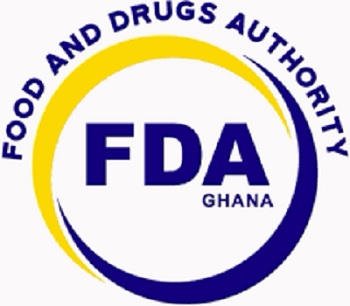
FDA must crack the whip
There is a common saying — we are what we eat. Food safety is paramount in the development of any country.
Advertisement
That is why the Food and Drugs Authority (FDA) was set up to ensure that the food we eat does not harm us.
Recently, the FDA raised a health alert on the drying of flour on the pavements of roads.
The flour, the main ingredient for ‘tuo zaafi’, a popular food in Ghana, is often dried along pavements of highways.
This is often done at the mercy and vagaries of the weather, the dust generated by passers-by who use such pavement and other contaminants.
Such flour is also exposed to animals and rodents that walk in and out, leaving in their trail, pathogens that eventually end up in the system of the consumers.
The FDA explained that its surveillance team, as part of its monitoring, observed the practice and had to direct the millers and those who prepare the food to stop the practice.
They were also made to immediately remove the flour from the pavement, especially along the Kanda Highway in Accra.
It is a fact that this practice has existed not only in the urban areas, but even in the rural areas where food items are dried in the most unhygienic manner.
At least, the Daily Graphic is happy that the FDA is taking steps to right those wrongs because it is better late than never.
We share the concerns of the FDA against the practice because of the obvious health consequences it has on the final consumers of the product of the flour.
We, however, wish to draw the attention of the FDA to the fact that the pavements are not used to dry only flour, but other food items.
It is a common sight, particularly along highways, to see flour, cassava, pepper, maize, among others, spread on plastic mats and other materials in the open.
It is a good step taken by the FDA to issue the instruction for the flour to be taken off the pavement but it went further to engage with the market women and millers.
From the engagement, it was obvious that they are oblivious of the potential health hazards associated with the practice.
After all, this is an age-old practice that they had inherited.
We commend the FDA for going further to engage other stakeholders such as the local authorities, including the assembly members and the law enforcement agencies, to work with the market women and millers to ensure compliance.
The Daily Graphic agrees with the FDA that food safety measures require collective efforts and we all ought to join in the fight to avoid any future outbreak of food-borne diseases.
The FDA is not present everywhere.
It is therefore our responsibility to alert the authority.
We must all, as a nation, go beyond the ‘tuo zaafi’ flour to the canned food we buy in shops and supermarkets.
The FDA, on countless occasions, has advised the public to check the expiry dates, particularly of food items.
It has also appealed to the public to report issues of food-related illnesses.
Last year, it was at the Mallam Atta Market that the FDA busted market women mixing palm oil with dangerous chemicals.
Early this year, it was Yellow Sisi Waakye and recently, the authority had the unpleasant duty of suspending the production and distribution of Anointed Family Water and Rena Aqua Sachet Water.
The surveillance unit of the authority is doing well and needs the support of all.
Let us all help the authority to ensure that we are eating healthy food at all times.
Truly, our collective effort is needed to ensure that we have a nation with healthy and productive people to spur growth and development.
For, a healthy nation is a wealthy nation.




